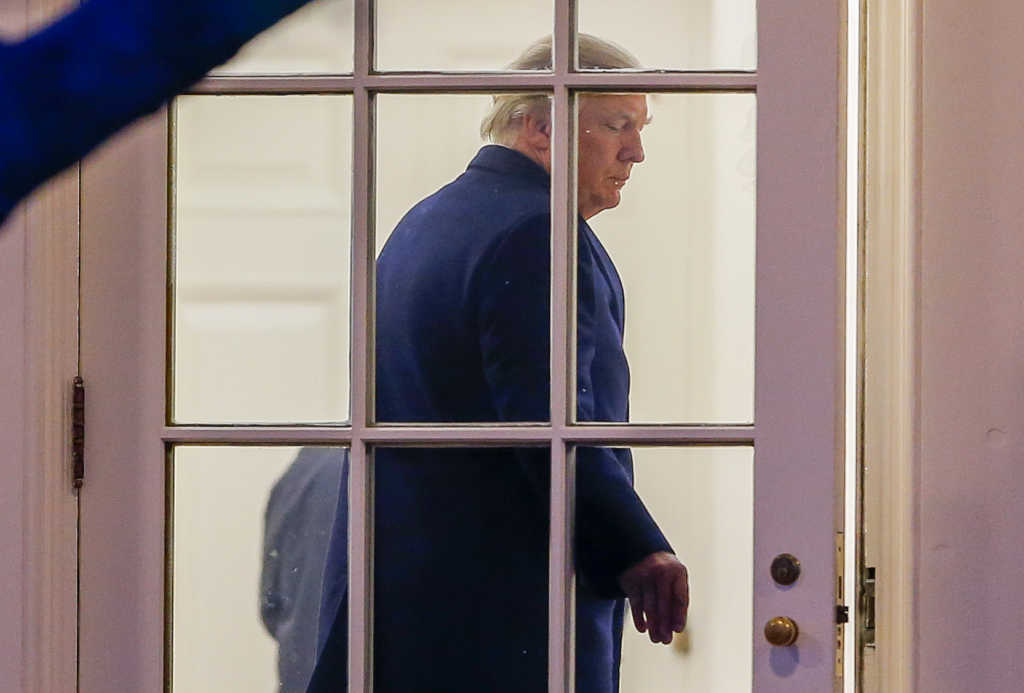President Donald Trump officially signed an amended executive order on Monday addressing some of the concerns surrounding his initial immigration order. The measure specifically tackles claims that the first order was an effort by the Trump administration to impose a backdoor restriction on Muslim immigration to the U.S.
“Executive Order 13769 did not provide a basis for discriminating for or against members of any particular religion,” the new order reads. “While that order allowed for prioritization of refugee claims from members of persecuted religious minority groups, that priority applied to refugees from every nation, including those in which Islam is a minority religion.”
The text goes on to say that the amended order also “applied to minority sects within a religion” and that it was not “motivated by animus toward any religion.”
It’s intent, according to the new order, was to “protect the ability of religious minorities — whoever they are and wherever they reside — to avail themselves of the [The United States Refugee Admissions Program] in light of their particular challenges and circumstances.”
Sessions: "Like every nation, the United States has a right to control who enters our country and to keep out those who would do us harm." pic.twitter.com/NthsXzs2fx
— Fox News (@FoxNews) March 6, 2017
But that’s only one of the important elements addressed in the order. Among its more notable and expected changes, the revised executive order removes Iraq from the initial list of seven countries from which immigration to the U.S. will be temporarily halted. The countries that remain on that list are Iran, Syria, Sudan, Yemen, Libya and Somalia.
“These are countries that had already been identified as presenting heightened concerns about terrorism and travel to the United States,” the revised order explains. “In 2016, the Secretary of Homeland Security designated Libya, Somalia, and Yemen as additional countries of concern for travel purposes, based on consideration of three statutory factors related to terrorism and national security.”
According to the document, those factors involved whether the presence of an alien in the country would increase the likelihood of threats to the U.S., whether a foreign terror group had a significant presence in the country or whether the country in question is considered a safe haven for terrorists.
Like the original order, the refugee program will be suspended for 120 days, and people traveling to the U.S. from the aforementioned countries who didn’t secure a visa before Jan. 27, will be banned for the next 90 days, as Fox News reported.
“In light of the conditions in these six countries, until the assessment of current screening and vetting procedures required by section 2 of this order is completed, the risk of erroneously permitting entry of a national of one of these countries who intends to commit terrorist acts or otherwise harm the national security of the United States is unacceptably high,” the new order reads.
And while Syria was specifically singled out in the initial order — with Trump indefinitely suspending immigration from that country — the new order amends that language to treat Syrian refugees and other residents like those in the remaining six countries.
The third notable change centers on green card holders; the new language makes clear that these individuals will not be impacted by the order, Fox News reported.
Parts of the revised order offered explanations as to why Trump chose to sign the initial order, with the text explaining that the president, among others, has had concerns about the initial seven countries listed. Additionally, the document states that the actions taken within align with the powers granted to him in the U.S. Constitution. Read the document in its entirety here.
—
Other Must-Read Stories:
– Melania Trump Visits NYC Hospital, Reads One of Barron’s Favorite Books to Children
– Get a First Look Inside the Massive Museum Set to Change the Way the World Sees the Bible
– Radio Host Hugh Hewitt Issues a Vital Warning to Christians Working in Secular Media



